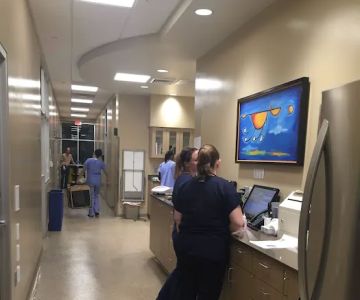How to Become a Veterinary Surgical Technician: A Comprehensive Guide
- What is a Veterinary Surgical Technician?
- Key Skills Required for a Veterinary Surgical Technician
- Steps to Become a Veterinary Surgical Technician
- Education and Certification for a Veterinary Surgical Technician
- Job Outlook and Career Prospects for Veterinary Surgical Technicians
- Real-Life Case Study of a Veterinary Surgical Technician
What is a Veterinary Surgical Technician?
If you have a passion for animals and are interested in the medical field, becoming a veterinary surgical technician could be the perfect career choice. Veterinary surgical technicians assist veterinarians during surgeries, ensuring that the animal is safe, comfortable, and well-prepared for any medical procedures. Their role is crucial in the operating room, and they are responsible for preparing instruments, monitoring the animal’s condition during surgery, and even assisting with post-operative care.
Key Skills Required for a Veterinary Surgical Technician
Becoming a successful veterinary surgical technician requires a combination of technical skills and personal attributes. These professionals need to be detail-oriented, calm under pressure, and have strong communication abilities to work effectively with both veterinarians and pet owners. Some of the key skills required include:
- Knowledge of veterinary anatomy and surgical procedures
- Strong manual dexterity for handling surgical tools
- Ability to monitor animal vitals during surgery
- Exceptional problem-solving skills
- Compassion and understanding for animals in stressful environments
Steps to Become a Veterinary Surgical Technician
Embarking on the path to become a veterinary surgical technician involves several key steps. These steps ensure that you gain the necessary education, hands-on experience, and certification to succeed in this rewarding field. Here are the steps to follow:
- Earn a high school diploma or GED – A strong foundation in subjects like biology, chemistry, and mathematics will be essential for your future education.
- Complete a veterinary technician program – Many schools offer specialized programs in veterinary technology, which often include courses in surgical assisting, anesthesia, and radiology.
- Complete hands-on clinical training – Clinical practice is a crucial component of veterinary technician education, allowing you to apply your theoretical knowledge in real-world scenarios.
- Pass a certification exam – Certification, such as the Veterinary Technician National Exam (VTNE), is typically required in many states. This exam tests your knowledge in a variety of areas, including surgical assisting.
- Obtain state licensure – Some states require a state-specific license to practice as a veterinary surgical technician, which can involve additional testing or requirements.
Education and Certification for a Veterinary Surgical Technician
To become a veterinary surgical technician, formal education is a must. Most veterinary surgical technicians complete an accredited associate's degree program in veterinary technology, which typically takes about two years. During these programs, students learn the ins and outs of animal care, surgical procedures, and even medical ethics. Some schools offer specialized training in surgery, giving you an edge in the competitive job market.
After completing your educational program, obtaining certification is the next critical step. Certification requirements vary by state, but in general, you will need to pass a national exam to become a licensed veterinary surgical technician. Certification demonstrates that you have the necessary skills to assist with complex surgeries and ensures that you are recognized as a qualified professional in the field.
Job Outlook and Career Prospects for Veterinary Surgical Technicians
The demand for veterinary surgical technicians is expected to grow significantly over the next decade. According to the U.S. Bureau of Labor Statistics, the employment of veterinary technicians is projected to grow by 16% from 2019 to 2029, much faster than the average for other occupations. This increase is due to the growing number of pet owners and the need for specialized veterinary care, including surgeries and medical procedures for animals.
As veterinary surgical technicians gain experience, they may have opportunities to advance to higher positions, such as lead surgical technician or veterinary practice manager. Additionally, some may choose to specialize further in areas like emergency surgery or orthopedics, opening up even more career options and the potential for higher pay.
Real-Life Case Study of a Veterinary Surgical Technician
Let me share a story of a veterinary surgical technician I know, Sarah, who works at a well-known veterinary hospital in California. Sarah started her career by attending a two-year veterinary technician program and immediately went on to work in surgery. One of the first surgeries she assisted with was a complex orthopedic procedure on a dog that had suffered a broken leg in a car accident. She recounts the experience as both challenging and rewarding, noting how she had to stay focused and calm while monitoring the dog’s vitals during the operation.
Today, Sarah is a senior surgical technician and leads a team of veterinary staff during surgeries. Her passion for animals and her career has not only helped save many animals' lives but has also provided her with a fulfilling and stable job. Her story highlights the personal and professional rewards that come with being a veterinary surgical technician.
Interested in Becoming a Veterinary Surgical Technician?
If you are passionate about animal health and want to make a meaningful difference in their lives, becoming a veterinary surgical technician is a fantastic career choice. It combines technical expertise with compassion for animals in a fast-paced, rewarding environment. Whether you are just starting out or looking to advance your career, the opportunities in this field are vast and growing every day.
If you're ready to pursue this fulfilling career path, consider finding accredited programs in your area that offer the training and certification you need to become a veterinary surgical technician. With the right education, hands-on experience, and certification, you can start making an impact in the world of veterinary surgery and animal care today!











